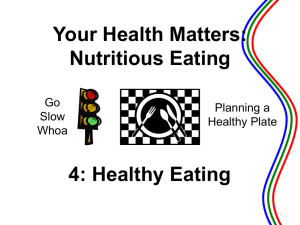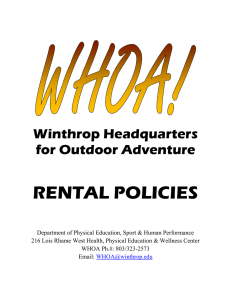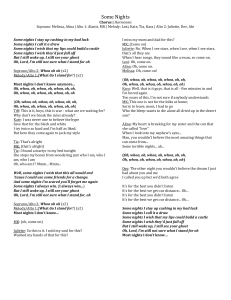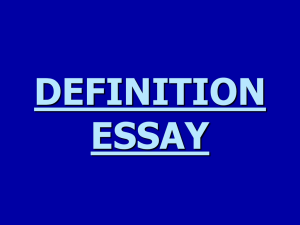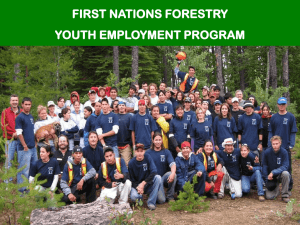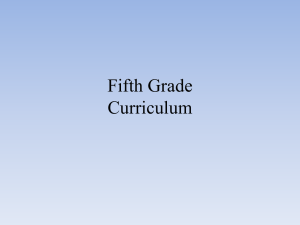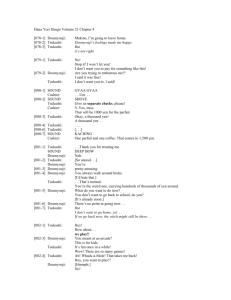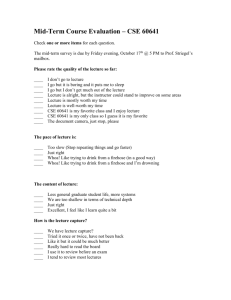Final-EatPlayGrow-slides-2.17.14
advertisement
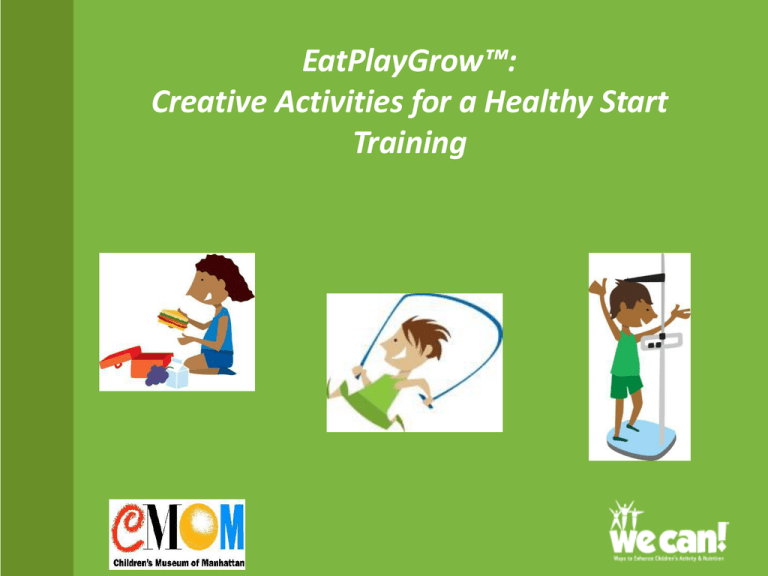
EatPlayGrow™: Creative Activities for a Healthy Start Training What is We Can? We Can! (Ways to Enhance Children’s Activity & Nutrition)® A health education program developed by the NIH designed to provide parents, caregivers and communities the tools and strategies they need to help children stay at a healthy weight through: Eating right Moving more Reducing screen time Children’s Museum of Manhattan Over 35 years serving families in the most diverse city in the world 375,000 visitors per year 20% of visitors are low income, head start families and groups A nationally recognized leader, CMOM tours exhibitions and programs in early childhood education, creativity, culture and health throughout the U.S. and in Canada Experienced collaborator with public and private partners Research + Creativity = EatPlayGrow™ We Can! Parent Program • • • Research on nutrition, physical activity, obesity prevention Behavior change theories Community Engagement • • • • • Art-making Storytelling Music Age-appropriate movement activities Family Health Journal 8 What is EatPlayGrow™? EatPlayGrow™ An early childhood health curriculum developed by the Children’s Museum of Manhattan in partnership with the National Institutes of Health’s (NIH’s) We Can! program • Teaches positive messages about health in fun and engaging ways for the whole family • Designed to meet Pre-K and Health Standards • Uses art, literacy, math and physical activities to teach health content EatPlayGrow™ Provides families with information and strategies to make healthy choices. What is EatPlayGrow™ all about? EatPlayGrow™: The Eleven Lessons • • • • • My Five Senses Go Slow Whoa Fabulous Fruits Move to the Beat Energy Balance • • • • • • I Love My Veggies Perfect Portions Dem Bones Healthy Beverages Smart Sleep Family Meal Each lesson takes approximately 70 minutes EPG: Lesson Structure • Introduction and Discussion • Key Teaching Messages • Art Activity • Healthy Snack • Story Time • Physical Activity • Parent Hand-Outs Lesson #2 From the EPG Curriculum Lesson #2 Go, Slow, and Whoa A Walk Through Lesson # 2: GO, SLOW, WHOA EatPlayGrow™ : Getting Started GO, SLOW, WHOA: Introduction The “Hello” Song will begin each lesson Lyrics: Hello everybody yes indeed, yes indeed, yes indeed hello everybody yes, indeed we're so glad to see you! Hello to (insert each child's name) Short rhythmic songs are fun and engaging for children and help focus the class! GO, SLOW, WHOA: Discussion We use the concept of a stop light to explain how to think about foods in three categories. GO Foods - lowest in fat, sugar, and relatively low in calories. Great anytime! SLOW Foods- higher in fat, sugar and calories. Have sometimes, at most a few times a week. WHOA Foods - highest in fat, sugar and calories. Have once in a while, in small portions. Go/Slow/Whoa was originally adapted from CATCH: Coordinated Approach to Child Health, 4th Grade Curriculum, University of California and Flaghouse, Inc., 2002. GO, SLOW, WHOA: Key Teaching Messages • Objective: Learn the three food categories and how to identify foods that are good choices for a healthy body • Adult Message: Increase family’s daily intake of “Go” food, while reducing “SLOW” and “WHOA” food • Pre-School Readiness Skills: Learn to count, sort and, categorize Go, Slow, and Whoa! Lesson Video http://vimeo.com/83615828 GO, SLOW, WHOA: Physical Activity GO, SLOW, WHOA Movement Game For GO foods, children Directions: run in place Call out and show For SLOW foods, children an image of a GO, walk in place SLOW, or WHOA For WHOA foods, food. children sit down/or stop Cool Down Activities • It’s important to add a warm up and a cool down to any physical activity. • It’s also a great way to get students focused and on task. GO, SLOW, WHOA: Art Activity Stop Light Collage Directions: 1. Make copies of the stop light included in the lesson plan. 2. Cut out food images included in the Lesson plan. 3. Color in the stop light. 4. Go through each category one at a time and have students glue them to their corresponding light. A Go, Slow, Whoa Traffic light made by a Head Start classroom in Brooklyn, NY GO, SLOW, WHOA: Group Story Time GO, SLOW, WHOA: Healthy Snack • There is a recommended snack that accompanies every lesson. • This lesson has two GO Foods: orange slices and whole grain rice cakes! GO, SLOW, WHOA: Parent Handouts GO, SLOW, WHOA: At-Home Strategies • Serve a piece of fruit instead of cookies • Serve water and fat-free or low-fat milk instead of sodas with sugar • Remove WHOA and SLOW snacks from the house and replace with GO choices • Remember, if you eat sweets and snacks, eat small amounts and only once in a while How to Get Started First, download a copy of EatPlayGrow FREE from www.cmom.org or NIH Order one (also free, while supplies last) from the NHLBI Health Information Center: 301-592-8573 Think about the topics you’re comfortable presenting, and don’t be afraid to adapt the lessons to accommodate your students’ needs Re-visit/Review. First Book First Book is partnering with CMOM to provide low cost early childhood health books through their website. First Book: www.firstbook.org EatPlayGrow Marketplace on First Book: http://www.fbmarketplace.org/top ics/healthy-living/cmomeatplaygrow Getting the Entire Family on Board Changing a family’s lifestyle isn’t about convincing one parent to make a change...it’s about the whole family making health a priority Tips for the family “gatekeeper:” Make changes slowly Talk individually to family members that may be a barrier – What approaches will they value for improving diet and physical activity? Think parent and family engagement Be a role model, even if it’s hard Hands On Activities • Each group will be provided with a lesson and materials • Each group will have the opportunity to go through each lesson and do a portion of the lesson. • Groups will report out and give an overview on the lesson they were provided with to the rest of the group Thanks for joining us!! Help us make a difference in the lives of our children & families! Questions?
